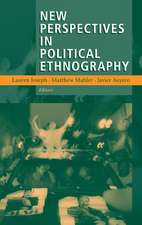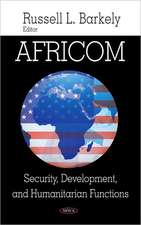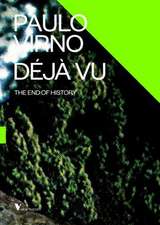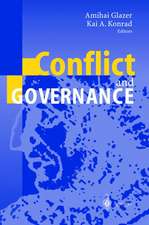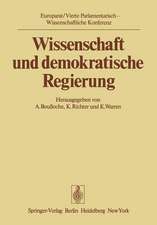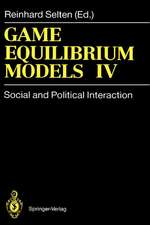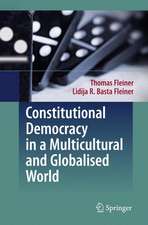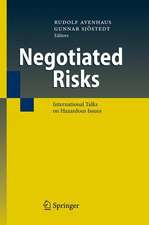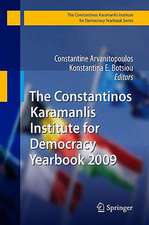The End of the Democratic State: Nicos Poulantzas, a Marxism for the 21st Century: Marx, Engels, and Marxisms
Editat de Jean-Numa Ducange, Razmig Keucheyan Traducere de David Broderen Limba Engleză Hardback – 20 aug 2018
This edited volume takes a close look at Nicos Poulantzas’s thought as a means of understanding the dynamics of the capitalist, neoliberal state in the 21st century. Nicos Poulantzas has left us with one of the most sophisticated theories of the state in the second half of the 20th century. Poulantzas’s influential theory draws inspiration from Marx, Lenin, Weber, and Foucault, among other thinkers, conceiving of the relationship between capitalism and the state as particularly original. This book aims to use Poulantzas’s theory of the capitalist state in order to understand important political and economic trends that have taken place since Poulantzas’s death in 1979. By entering into a dialogue with current Marxist and critical research in diverse fields such as political science, philosophy, sociology, history, and geography, this volume purports to evaluate the actuality of Poulantzas’s thought.
| Toate formatele și edițiile | Preț | Express |
|---|---|---|
| Paperback (1) | 464.50 lei 6-8 săpt. | |
| Springer International Publishing – 5 ian 2019 | 464.50 lei 6-8 săpt. | |
| Hardback (1) | 725.43 lei 6-8 săpt. | |
| Springer International Publishing – 20 aug 2018 | 725.43 lei 6-8 săpt. |
Din seria Marx, Engels, and Marxisms
- 17%
 Preț: 429.12 lei
Preț: 429.12 lei -
 Preț: 357.02 lei
Preț: 357.02 lei -
 Preț: 215.80 lei
Preț: 215.80 lei - 20%
 Preț: 691.14 lei
Preț: 691.14 lei - 20%
 Preț: 568.04 lei
Preț: 568.04 lei -
 Preț: 199.14 lei
Preț: 199.14 lei - 20%
 Preț: 754.09 lei
Preț: 754.09 lei - 20%
 Preț: 567.95 lei
Preț: 567.95 lei - 20%
 Preț: 694.03 lei
Preț: 694.03 lei - 20%
 Preț: 692.67 lei
Preț: 692.67 lei - 9%
 Preț: 625.59 lei
Preț: 625.59 lei - 18%
 Preț: 889.92 lei
Preț: 889.92 lei - 15%
 Preț: 584.43 lei
Preț: 584.43 lei - 15%
 Preț: 642.03 lei
Preț: 642.03 lei - 18%
 Preț: 787.29 lei
Preț: 787.29 lei - 15%
 Preț: 694.69 lei
Preț: 694.69 lei - 18%
 Preț: 784.13 lei
Preț: 784.13 lei - 15%
 Preț: 579.02 lei
Preț: 579.02 lei - 18%
 Preț: 730.47 lei
Preț: 730.47 lei -
 Preț: 383.93 lei
Preț: 383.93 lei - 18%
 Preț: 785.42 lei
Preț: 785.42 lei - 15%
 Preț: 579.02 lei
Preț: 579.02 lei - 15%
 Preț: 581.33 lei
Preț: 581.33 lei - 15%
 Preț: 645.79 lei
Preț: 645.79 lei - 18%
 Preț: 940.25 lei
Preț: 940.25 lei - 18%
 Preț: 896.39 lei
Preț: 896.39 lei - 18%
 Preț: 782.57 lei
Preț: 782.57 lei - 18%
 Preț: 781.94 lei
Preț: 781.94 lei - 15%
 Preț: 582.80 lei
Preț: 582.80 lei -
 Preț: 327.71 lei
Preț: 327.71 lei - 15%
 Preț: 586.05 lei
Preț: 586.05 lei - 15%
 Preț: 493.89 lei
Preț: 493.89 lei - 15%
 Preț: 501.55 lei
Preț: 501.55 lei -
 Preț: 213.20 lei
Preț: 213.20 lei - 18%
 Preț: 783.50 lei
Preț: 783.50 lei - 15%
 Preț: 471.53 lei
Preț: 471.53 lei - 15%
 Preț: 496.80 lei
Preț: 496.80 lei - 18%
 Preț: 893.05 lei
Preț: 893.05 lei - 18%
 Preț: 895.58 lei
Preț: 895.58 lei -
 Preț: 450.49 lei
Preț: 450.49 lei
Preț: 725.43 lei
Preț vechi: 884.68 lei
-18% Nou
Puncte Express: 1088
Preț estimativ în valută:
138.80€ • 144.94$ • 114.62£
138.80€ • 144.94$ • 114.62£
Carte tipărită la comandă
Livrare economică 15-29 aprilie
Preluare comenzi: 021 569.72.76
Specificații
ISBN-13: 9783319908892
ISBN-10: 3319908898
Pagini: 152
Ilustrații: XXI, 168 p. 5 illus.
Dimensiuni: 148 x 210 mm
Greutate: 0.38 kg
Ediția:1st ed. 2019
Editura: Springer International Publishing
Colecția Palgrave Macmillan
Seria Marx, Engels, and Marxisms
Locul publicării:Cham, Switzerland
ISBN-10: 3319908898
Pagini: 152
Ilustrații: XXI, 168 p. 5 illus.
Dimensiuni: 148 x 210 mm
Greutate: 0.38 kg
Ediția:1st ed. 2019
Editura: Springer International Publishing
Colecția Palgrave Macmillan
Seria Marx, Engels, and Marxisms
Locul publicării:Cham, Switzerland
Cuprins
1. the State and the Democratic Road to Socialism.- 2. Nicos Poulantzas’s Strategic Reflection, Between Economics and Politics.- 3. the Capitalist State, Hegemony and the Democratic Transformation Toward Socialism.- 4. Specters of ‘Totalitarianism’: Poulantzas Faced with Fascism and the State of Exception.- 5. the Comintern’s Uncertain Heritage.- 6. The Eurocommunism of the Intellectuals: Poulantzas and the Third Way to Socialism.- 7. the Ligue Communiste RéVolutionnaire, Nicos Poulantzas, and the Reception and Discussion of His Theory.- 8. Poulantzas: From Law to the State.- 9. Geographies of the State: Nicos Poulantzas and Contemporary Approaches to State/Space.- 10. A European Capitalism? Revisiting the Mandel-Poulantzas Debate.
Notă biografică
Jean-Numa Ducange is Assistant Professor of History at the University of Rouen, France.
Razmig Keucheyan is Professor of Sociology at the University of Bordeaux, France.
David Broder received his PhD in History from the London School of Economics, UK.
Textul de pe ultima copertă
This edited volume takes a close look at Nicos Poulantzas’s thought as a means of understanding the dynamics of the capitalist, neoliberal state in the 21st century. Nicos Poulantzas has left us with one of the most sophisticated theories of the state in the second half of the 20th century. Poulantzas’s influential theory draws inspiration from Marx, Lenin, Weber, and Foucault, among other thinkers, conceiving of the relationship between capitalism and the state as particularly original. This book aims to use Poulantzas’s theory of the capitalist state in order to understand important political and economic trends that have taken place since Poulantzas’s death in 1979. By entering into a dialogue with current Marxist and critical research in diverse fields such as political science, philosophy, sociology, history, and geography, this volume purports to evaluate the actuality of Poulantzas’s thought.
Caracteristici
Features an original contribution by Alvaro Garcia Linera, the Vice-President of Bolivia and one of the best-known living Marxist thinkers Interdisciplinary in nature with contributions by philosophers, sociologists, historians, and economists Of interest to those specializing in the study of the state, capitalism, spatial dimensions of modern societies, fascisms, the economic crisis, and the European Union

